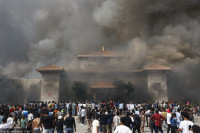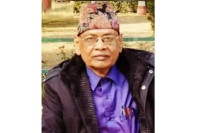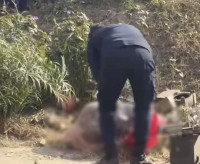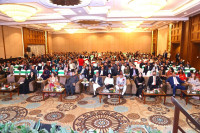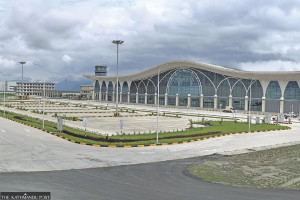Valley
Health Ministry taken all by surprise
Some of the items in the budget presented by Finance Minister Bishnu Poudel on Saturday have come as surprise even to the officials of the concerned line ministries.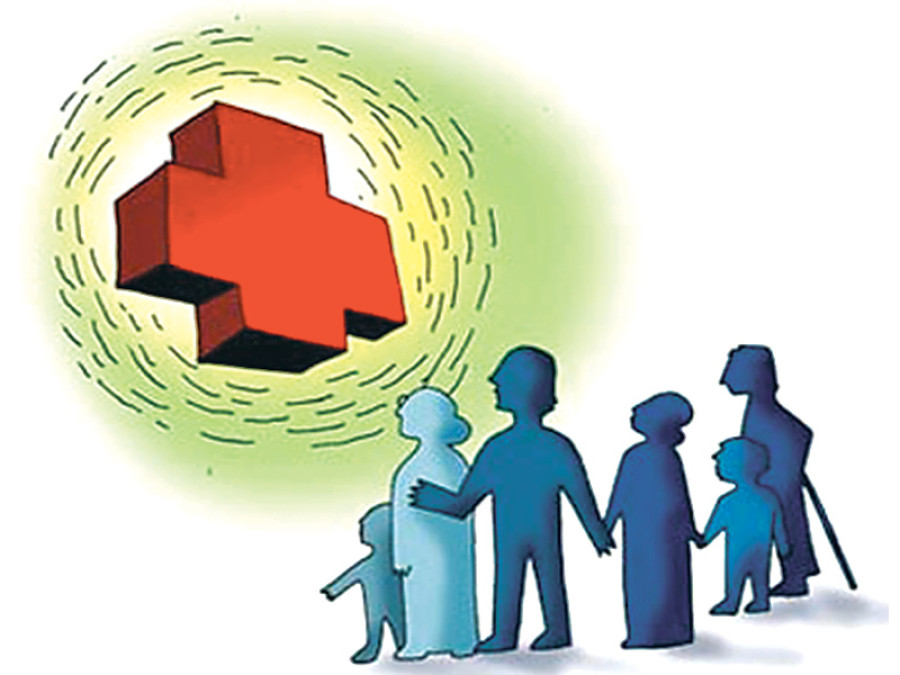
Manish Gautam
Some of the items in the budget presented by Finance Minister Bishnu Poudel on Saturday have come as surprise even to the officials of the concerned line ministries. When the Post spoke to officials at the Ministry of Health (MoH) after the budget speech, some of them, responsible for sending budgetary request to Ministry of Finance (MoF), said some items in the budget had come without their knowledge. Officials involved in the budget planning process said two programmes—establishment of modern laboratory and kidney centre in Bhaktapur and increasing the number of districts where health insurance will be expanded—came as surprise to them.
“We had no idea of the laboratory and kidney centre,” said Leela Raj Poudel, undersecretary at the planning division of the MoH.
In case of health insurance, the MoH had proposed expanding the programme to 10 districts with a budget of Rs1.5 billion. In the budget speech, however, Finance Minister Poudel announced a Rs 2.5 billion insurance programme, covering 25 districts.
MoH officials said many districts lack the capacity to effectively implement the programme.
“The programme was going smoothly. We had no intention of adding more districts without proper planning,” said Dr Guna Raj Lohani, chief of the insurance programme at MoH.
The MoH has struggled for years to implement its programme, and with subsequent changes in government, they have kept on adding more ambitious programmes without taking into account the past implementation failure.
The issue of current health insurance scheme earnestly began in the fiscal year 2011/12 against the backdrop of the failure of community based health insurance programme (CBHI). The CBHI programme was first announced in the budget speech of 2003/04 which the MoH implemented for around six years, but failed miserably with high drop-out rates and poor coverage.
According to sources, finance minister and health minister had shown particular interest in increasing the health insurance coverage during the budget preparation meeting. Later, a ceiling of Rs38 billion was set for the MoH to plan their programme and it proposed Rs1.5 billion for health insurance, proposing to expand it to next 13 districts that would cover districts in various federal provinces and geographical locations. The, MoF, however added an additional Rs1 billion and increased the districts to 25.
Evolution of insurance
In January of 2012, the Prime Minister’s Office wrote to the MoH to implement health insurance for all citizens. In 2011/12, the budget announced social health insurance programme for only 20 major diseases. By 2013/14, the budget talked of developing health insurance policy and stated that the programme will be implemented in 15 districts in fiscal year 2014/15. However, the 2014/15 budget delayed implementation of the health insurance programme to fiscal year 2015/16. In 2015/16, the budget speech decreased the number of implementation districts and focused only in three districts—Kailali, Baglung and Ilam. The programme was recently implemented on May 14 after missing the stipulated deadline of mid-November last year as set by the budget.
“It’s going to be challenging to implement the programme given our past records,” said Poudel. “But it becomes even harder when programme are increased without our consultation.”
The current health insurance programme is implemented in Kailali where a family of five persons should pay a premium of Rs 2,500 annually. For additional persons in the household, Rs 425 per person should be paid. With the insurance, each family members can access the services of up to Rs 50,000.
Dr Lohani said in the present context, it is hard to expand the programme to 25 districts. “We can effectively implement it in another 10 districts and not more,” said Dr Lohani.
Ananda Bhattarai, under-secretary at the MoF, said the planning must have been done at ‘higher-level’ and might not have been consulted. “We make sure that planning is done with the health ministry. Sometimes, the meetings are done at higher levels and is decided accordingly,” said Bhattarai.




 13.12°C Kathmandu
13.12°C Kathmandu
